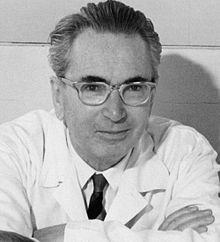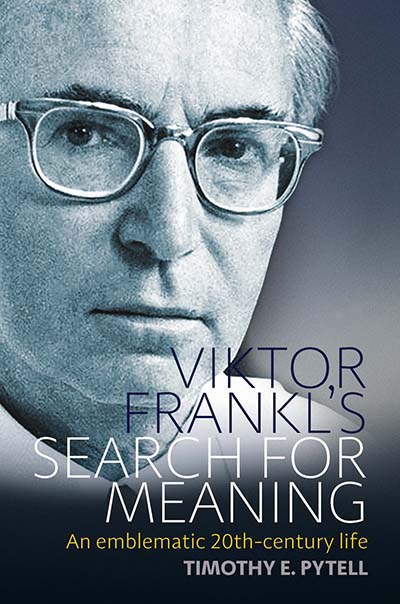TIMOTHY E. PYTELL
The recent United Nations General Assembly declaration that the anniversary of the liberation of Auschwitz – January 27 – be designated International Holocaust Remembrance Day reflects the reality that the Holocaust has become a touchstone in global memory. Given the magnitude of the “unprecendented” destruction, this is not surprising. However, the conflation of the Holocaust with Auschwitz also distorts our understanding. For example, although Auschwitz is the culmination of the Holocaust, by the time the gas chambers came onto line at Auschwitz in April of 1943 three quarters of the Jews killed in the Holocaust were already dead. The vast majority of the Soviet and Polish Jews were killed east of the Molotov-Ribbentrop line and often by bullets. In Timothy Snyder’s words “Auschwitz is the coda to the death fugue.” (Snyder Bloodlands p. 383).

In a similar fashion, Viktor Frankl’s survival of Auschwitz continues to sustain and distort his posthumous life. His renowned Holocaust testimony, Man’s Search for Meaning remains a “bestseller” especially amongst those looking for a spiritually uplifting book. Recently, Straight up Films has bought the rights to make a movie based on the book. Also, this Spring, Beacon Press is translating and publishing the lecture series given by Frankl immediately after the war titled Yes to Life: In Spite of Everything. As the title suggest, the lectures repeat Frankl’s inspiring and heroic tale of surviving the Holocaust.
Over the years many “Self Help” experts have promoted Frankl’s testimony. Tony Robbins considers it a must read. Stephen Covey, the author of the widely popular the Seven Habits of Highly Successful People suggested Frankl had more power than the Nazis, because although his Nazi captors “had more liberty, more options to choose form in their environment” Frankl “had more freedom, more internal power to exercise his options.” For Holocaust specialists that view the camps as a system of pervasive sadistic terror, this reads like fiction. Interestingly, it was Covey who initiated the responsibility foundation which aspires to fulfill Frankl’s vision that a three-hundred-foot Statue of Responsibility is needed on the U.S. West Coast to compliment the Statue of Liberty. The goal is to build the monument by 2023. In the conclusion of my book, I wonder if it matters to the responsibility foundation leaders that Frankl embraced the ideas of will and responsibility as therapeutic tools in the mid-1930s when working under the umbrella of the Goering Institute that was promoting a Nazi form of psychotherapy.
In January 2020, the renowned conservative radio host Dennis Prager was interviewed for an inaugural book club by Micheal Knowles. The subject is Frankl’s testimony, which Prager claims is second to the Bible as the most influential in his life. The interview reveals Prager has a deep admiration and fascination with Frankl that began with his reading of Man’s Search for Meaning in high school. Prager even identifies with Frankl, especially Frankl’s claim that the survivor has nothing left to fear than his God –Prager states “I am that guy.”
The interview makes clear the Prager admired Frankl for his testimony and survival of Auschwitz. But the interview also reveals Prager doesn’t “know” Frankl beyond his testimony. He never met Frankl. He also states Frankl was 24 when he wrote his testimony when “most people think he was middle aged.” Frankl was born in 1905, so in 1946 he was middle age. Perhaps most importantly, Frankl was never “in” Auschwitz. He was held in “depot” for three days outside of Auschwitz before being transferred to Dachau where he was numbered and spent five trying months. This fact stunned me when I discovered it, since any lay reader – and all of the aforementioned self-help experts – conclude he spent a great of time in Auschwitz and admire his life-embracing response.
In the end, the equation of the Holocaust with Auschwitz continues to distort our understanding of the Holocaust in general, and in the case of Frankl, actual Holocaust experience. I have no doubt Frankl’s afterlife will continue to inspire millions – as well he should. As I conclude, Frankl lived a fascinating emblematic twentieth-century life. However, by reflecting on the detailed biographical back story along with a full exposition of the social and intellectual currents to Frankl’s search for meaning, we deepen our comprehension of not only Frankl’s tragedy but the Twentieth Century – and beyond.
Timothy E. Pytell is Chair of the History department at California State University, San Bernardino and author of VIKTOR FRANKL’S SEARCH FOR MEANING, now available in paperback. He published an abridged version of this biography, titled Viktor Frankl: Das Ende eines Mythos, in German in 2005.
NEW IN PAPERBACK!
VIKTOR FRANKL’S SEARCH FOR MEANING
An Emblematic 20th-Century Life
Timothy E. Pytell
Vol. 23, Making Sense of History
“As an introduction to Frankl’s ideas and their relationship to broader mid-twentieth-century intellectual currents, Pytell’s biography is an important contribution to the literature on Frankl and the contorted circumstances of his life.” • American Historical Review
“Pytell’s perceptive study should be read by any student of the Holocaust and any student of the postwar history of humanistic psychology. Pytell judges Frankl, but does so with generosity and compassion. Frankl, too, was a victim of the Holocaust.” • Holocaust and Genocide Studies
VIKTOR FRANKL’S SEARCH FOR MEANING and all other Berghahn eBooks are available for free and direct download until April 30, 2020 with discount code REMOTE20.

